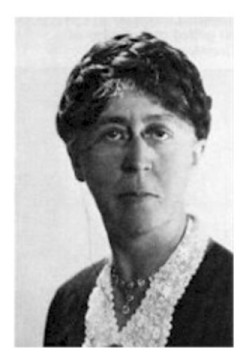Mary Parker Follett: Overlooked OP Precursor?
Mary Parker Follett: Overlooked OP Precursor?
Who Was Mary Parker Follett?
Mary Parker Follett, a management theorist who lived between 1868 and 1933, made groundbreaking contributions to our understanding of human relations, organisational structure, and conflict resolution. While other luminaries like Frederick Taylor and Max Weber often overshadow her, her work remains an important cornerstone in organisational studies.
What Did Follett Believe?
Follett’s work emphasised the human aspects of management. She promoted concepts like “power-with” rather than “power-over” and touted the significance of “group mind” or collective consciousness. For her, organisations thrived when their members shared power and collectively contributed to solutions. Her ideas laid a strong foundation for understanding the dynamics that occur within a group, a foundation that has influenced the field of organisational psychotherapy.
How Does Follett’s Work Relate to Organisational Psychotherapy?
The core tenets of Follett’s philosophy, such as collective consciousness and the collaborative model of power, overlap significantly with organisational psychotherapy. Both approaches focus on the importance of understanding the deep-seated beliefs, assumptions, and behaviours that form the bedrock of an organisation. Like Follett, organisational psychotherapy also believes in delving into the collective unconscious of an organisation to bring about systemic change.
Why Is the Group Mind Important?
In the language of organisational psychotherapy, Follett’s notion of a “group mind” would translate into the collective unconscious. This is an aggregate of shared assumptions, beliefs, and practices that shape the culture and functioning of an organisation. Recognising and addressing these aspects can significantly influence an organisation’s ability to change, adapt, and grow.
How Did Follett Anticipate Systems Thinking?
Before the term “systems thinking” became mainstream, Mary Parker Follett was already sowing its seeds. Her perception of the organisation as an interconnected web of relationships aligns perfectly with the modern understanding of systems thinking. She recognised that an organisation was not merely a collection of disparate parts but a complex system where every action had a ripple effect. Her focus on collaboration and “group mind” naturally extended to a holistic view of organisational dynamics, underscoring the interdependence of individual and collective actions. It’s clear that her work prefigured key aspects of systems thinking, making her an intellectual precursor to this influential modern discipline. Follett’s early insights offer valuable lessons for organisational psychotherapy, which also employs systems thinking to address the underlying issues affecting an organisation.
What Can We Learn from Follett Today?
Mary Parker Follett’s work, despite being a century old, offers a rich vein of ideas that organisations can tap into for modern problem-solving. For instance, her concept of “integrative conflict resolution” aligns with organisational psychotherapy’s goal to solve systemic issues by surfacing and addressing shared assumptions and beliefs.
The Next Step: An Explicit Invitation
Are you interested in exploring your organisation’s collective unconscious? Delving into your shared assumptions and beliefs? Your next step might be to consult an organisational psychotherapist. This is an explicit invitation to leverage Mary Parker Follett’s timeless wisdom for your organisation’s benefit.
Are Results Guaranteed?
While it’s impractical to guarantee outcomes in organisational change, the synergy between Follett’s philosophy and organisational psychotherapy provides a strong framework for effective transformation. By focusing on the collective aspects that shape behaviour and culture, you’re far more likely to achieve meaningful, lasting change.
Your Move
Mary Parker Follett offers us time-tested wisdom that aligns seamlessly with the objectives of organisational psychotherapy. If you’re looking to explore these ideas further, consulting an organisational psychotherapist might be your next best step. The choice is yours, but this is your invitation to take action.
Summary
Mary Parker Follett may not be as famous as some of her contemporaries, but her work remains profoundly relevant. It resonates strongly with the principles of organisational psychotherapy, offering a holistic approach to organisational development focused on collective consciousness and collaboration. The fusion of Follett’s ideas with organisational psychotherapy provides an enriching path for any organisation willing to explore deeper layers of its culture and operation.

